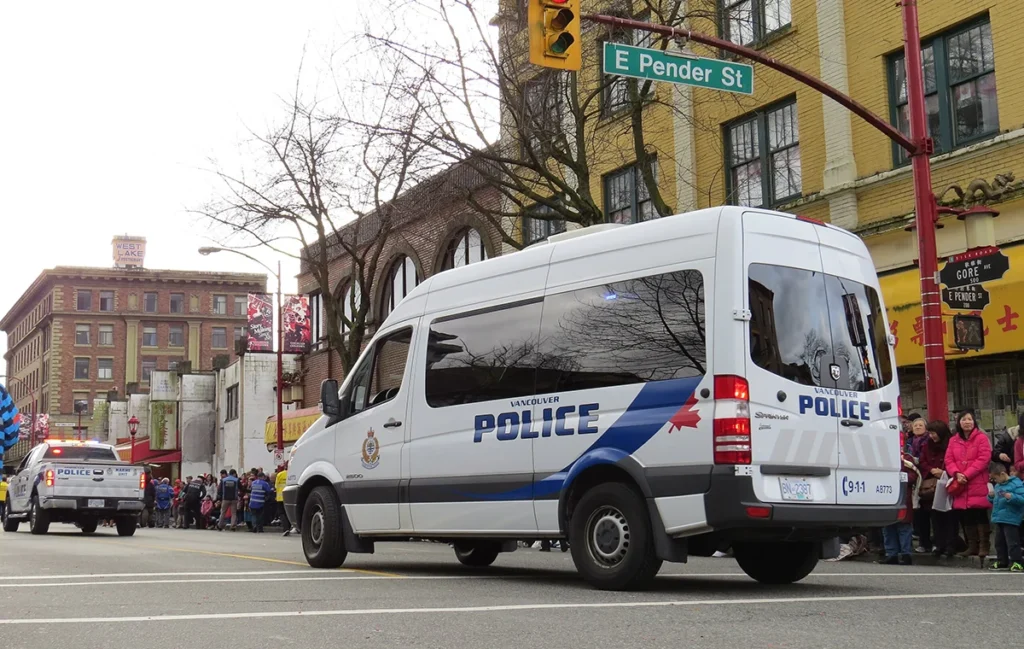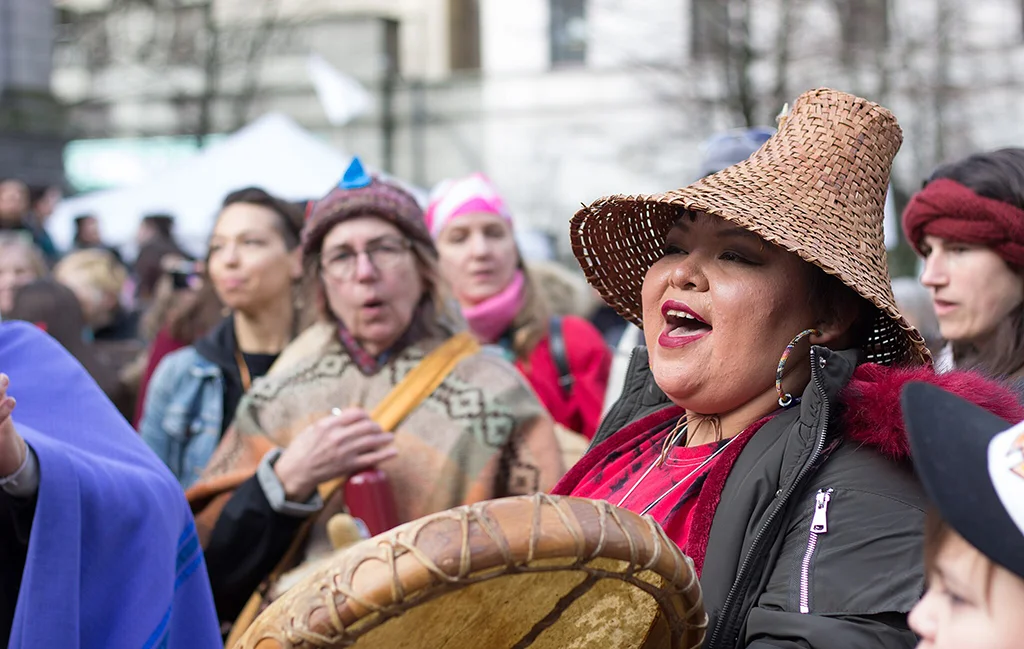Police associations are stepping back from supporting BC’s decriminalization pilot, citing public safety concerns and increasing disorder in communities. The withdrawal of backing from law enforcement has reignited debates about the policy’s effectiveness and exposed critical gaps in its implementation. With no clear alternative offered, questions remain about the future of harm reduction in the province and its broader implications for Canada.
Police Turn Their Backs on Decriminalization Pilot
In an unexpected and pivotal shift, the Canadian Association of Chiefs of Police (CACP), followed by the B.C. Association of Chiefs of Police (BCACP), have distanced themselves from supporting the province’s groundbreaking drug decriminalization pilot. The program, launched in January 2023, sought to decriminalize personal possession of up to 2.5 grams of certain drugs, including heroin, cocaine, and methamphetamine. For many, this initiative represented a long-overdue acknowledgment that addiction is a public health issue, not a criminal one.
The policy had been introduced with strong police support, touted as a collaborative effort to redirect law enforcement resources toward violent crime and trafficking while creating a safer environment for people who use drugs. Yet, less than a year in, police have raised alarm bells. “Public safety concerns have escalated,” the BCACP declared, citing increases in visible drug use, street disorder, and drug-related violence.
This shift marks a seismic moment in BC’s fight against the overdose crisis as police retract their endorsement of a policy they once supported. Critics of the withdrawal argue that police are abandoning a harm reduction strategy without offering a clear alternative. The retraction has left policymakers scrambling to reconcile law enforcement’s concerns with the broader goals of decriminalization.
An Incomplete Framework Leaves Communities Struggling
The cornerstone of BC’s decriminalization pilot was its promise to redirect users away from the criminal justice system and toward health and social services. However, many of the wraparound supports that were supposed to accompany the policy—addiction treatment beds, affordable housing, and accessible mental health care—remain insufficient. This absence of infrastructure has created a fragile framework where decriminalization exists without the tools necessary to support its success.
For communities like Vancouver’s Downtown Eastside, the effects are palpable. Residents describe an increase in open drug use and public safety concerns, with little evidence of meaningful change in overdose rates. Municipal governments, caught between harm reduction advocates and frustrated citizens, have responded with bans on public drug use in parks and sidewalks, exacerbating tensions.
“Decriminalization cannot work in isolation,” said one harm reduction expert, who emphasized that the program’s lack of integrated support undermines its potential. Without affordable housing or stable treatment options, individuals are left cycling between temporary fixes and a toxic drug market. Police argue that this service gap has placed an undue burden on law enforcement, which is being asked to maintain public order while the underlying problems remain unaddressed.
What Police Are Saying—and Not Saying
The withdrawal of police support comes at a politically charged time. BC has struggled to balance public safety concerns with harm reduction goals, and police associations are increasingly vocal about their dissatisfaction. Their critiques often focus on the lack of enforcement mechanisms to address public drug use and the absence of comprehensive support systems to help individuals access recovery pathways.
Yet a substantive alternative to the current model remains conspicuously absent from these critiques. While the police have flagged visible disorder and community dissatisfaction, they have not presented a cohesive plan to tackle the overdose crisis or address the toxic drug supply driving it. Some critics see this as an evasion of responsibility, arguing that law enforcement’s role in the drug crisis cannot be reduced to critique without contribution.
The decision to retract support also risks deepening divisions among stakeholders. Harm reduction advocates accuse police of undermining progress and reverting to punitive approaches, while police insist that they are simply responding to escalating public safety concerns. This rift highlights a fundamental tension in how the opioid crisis is framed—public safety versus public health—a binary that has complicated efforts to build consensus.
Public Perception and Policy Paralysis
Public opinion on decriminalization is now as divided as the institutions that once supported it. For many residents, particularly those in neighbourhoods most impacted by the crisis, visible drug use and disorder have become symbolic of a policy they feel is failing. Local governments have echoed these concerns, with mayors and councillors calling for adjustments to the pilot or even its suspension.
At the same time, harm reduction advocates argue that the backlash stems from misunderstanding the policy’s intent. Decriminalization was never designed to solve the overdose crisis on its own; it was meant to be one piece of a larger harm reduction puzzle. “What we’re seeing now is the result of half-measures,” one advocate explained. “Decriminalization without safe supply, treatment, or housing isn’t enough to combat the crisis we are facing.”
This polarization has left policymakers in a precarious position. The withdrawal of police support has amplified calls for reform, but any changes to the program risk alienating the harm reduction community. The government’s piecemeal responses, such as banning public drug use in certain areas, have done little to address the underlying causes of the crisis while further fragmenting the debate.
Can Decriminalization Succeed Without Systemic Reform?
The unraveling support for decriminalization underscores a deeper truth about BC’s response to the opioid crisis: no single policy can address a problem this complex. Addiction, homelessness, and mental health are deeply interconnected issues, and tackling one in isolation often results in unintended consequences elsewhere.
For the police, their withdrawal of support highlights legitimate concerns about the policy’s implementation. However, without proposing viable alternatives, their critique risks undermining efforts to address the crisis holistically. Policymakers must navigate this challenging terrain carefully, ensuring that public safety concerns are addressed without abandoning harm reduction principles.
BC’s decriminalization pilot is a work in progress, but its trajectory will have national implications. If the province can refine its approach, integrating harm reduction with robust social support, it could serve as a model for other jurisdictions grappling with similar crises. Conversely, if it fails, the pilot risks becoming a cautionary tale about the perils of implementing transformative policies without the infrastructure to sustain them.
Police Withdrawal Highlights Failures in BC’s Decriminalization Plan
The withdrawal of police support for BC’s decriminalization pilot lays bare a central truth: piecemeal policies cannot solve systemic crises, no matter how well-intentioned. The decision to decriminalize was never going to be a cure-all, but the absence of promised support structures—treatment access, stable housing, and mental health services—has rendered it an incomplete and fragile effort. While law enforcement cites public safety concerns as a reason to withdraw support, this move also sidesteps a pressing question: what tangible, coordinated solutions will replace the current approach?
The cracks in the decriminalization framework are symptoms of deeper failures: a toxic drug supply that continues to claim lives, overburdened healthcare systems unable to meet the demand for addiction treatment, and insufficient investments in prevention and recovery. These are problems that enforcement alone cannot solve, yet law enforcement’s withdrawal leaves policymakers without clear direction at a critical juncture. Decriminalization’s promise of destigmatizing drug use and addressing addiction as a public health issue remains unfulfilled, not because of its premise but because of its fractured execution.
BC’s experiment is a warning against halfway measures. Decriminalization stripped of its intended ecosystem of support cannot succeed, and police retreating from the effort leaves an unsettling vacuum. The future of this pilot—and the broader fight against Canada’s opioid crisis—hinges on whether stakeholders are willing to address the systemic failures laid bare by the policy’s shortcomings. Anything less would not only undercut the potential of harm reduction but risk perpetuating the very crises the policy aimed to resolve.
DOWNTOWNEASTSIDE.ORG is a collective author account used by several DTES contributors to discuss key issues and events in the neighbourhood. Articles under this authorship reflect diverse perspectives from those directly connected to the community. If you’d like to reach a specific contributor, please contact us via email.







Leave a Comment